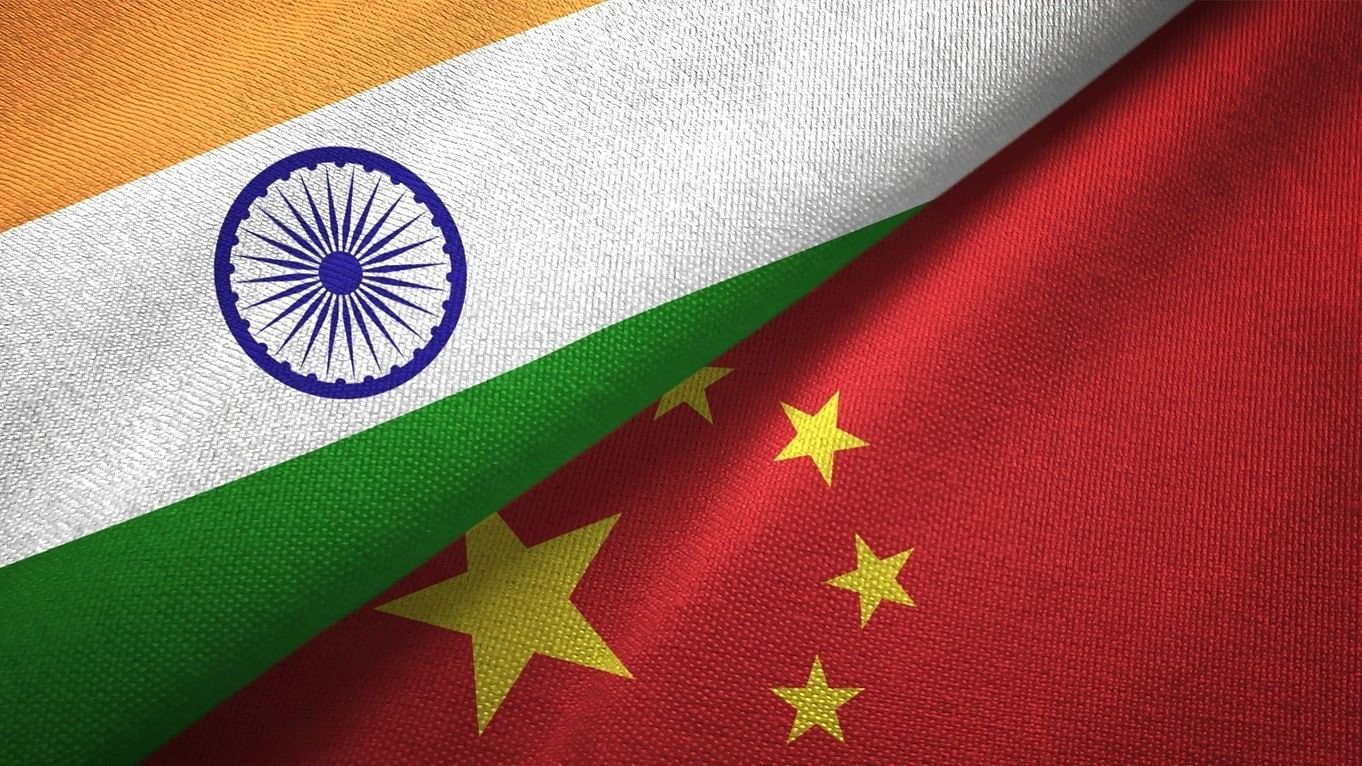
The flags of India and China.
Credit: iStock Photo
Critical minerals such as lithium, cobalt, graphite, and nickel, which are crucially important for various strategic sectors of the economy as well as for the transition to cleaner energy, have recently received much-needed attention in India.
Finance Minister Nirmala Sitharaman in the Union Budget 2024-25 presented in July unveiled a plan to launch a critical mineral mission. It will have a multi-pronged approach from promoting domestic production to recycling and overseas acquisition of critical mineral assets. “Its mandate will include technology development, skilled workforce, extended producer responsibility framework, and a suitable financing mechanism,” the minister announced. The mission is likely to be launched by the end of this year.
Sweeping changes in import tariffs have been introduced to boost the processing and refining of critical minerals in the country. Custom duties on 25 critical minerals such as lithium, cobalt, and copper have been slashed to zero. Earlier, the import duties on these minerals ranged from 2.5 per cent to 10 per cent. Duties on graphite, silicon quartz, and silicon dioxide have been reduced from 5-7.5 per cent to 2.5 per cent.
Credit: DH Illustration
“The government has taken the first step in the right direction realising that the dependency on China and others comes with its own attendant risks,” said Arun Vishwanathan, Professor & Head, Department of Security Studies, School of National Security Studies, Central University of Gujarat.
India is heavily dependent on China to meet the requirements of critical minerals. For example, around three-fourths of the country’s requirements of lithium and lithium-ion, which are critical elements for electric vehicle batteries, are imported from China. The situation is similar in the case of other critical minerals.
The source of critical minerals is geographically concentrated. China accounts for 79 per cent of Graphite and 60 per cent of rare earth mineral reserves. Around 55 per cent of the total lithium reserve is found in Australia while Congo has around 70 per cent of the world’s cobalt reserve. The concentration level is even higher for processing, with China dominating across the board.
“We need to recognise that this is a global issue and not unique to India,” said Rajnish Gupta, Partner, Tax and Economic Policy Group, EY India.
“Countries that are at an advantage are firstly those who have discovered deposits with critical minerals and secondly those who have established large critical mineral processing capacity,” Gupta said.
Addressing a Business 20 meeting during India’s G20 presidency last year, Prime Minister Narendra Modi warned that control of critical minerals by a few countries would lead to a new form of colonialism.
Only a few countries dominating the mineral resource exploration, refining, and processing capabilities have led to a geopolitical monopoly of critical mineral resources, said Sehul Bhatt, Director-Research, CRISIL Market Intelligence and Analytics.
Mineral exploration and battery manufacturing involve complex technology, research and development, and stringent process requirements. “Despite policy incentives, India has a relatively weak technical expertise and experience in this field,” said Bhatt.
To reduce reliance on imported cells and promote domestic battery manufacturing, the government launched a Rs 18,000 crore Production Linked Incentive (PLI) scheme in 2021 to develop Advanced Chemistry Cells (ACC) over 5 years with a capacity of up to 50 GWh. So far 40 GWh have been allocated through bidding.
"Critical minerals play a crucial role in India’s strategic and economic future, particularly in ensuring national security and driving the transition to greener energy sources," said Rakesh Surana, partner, Deloitte India.
"As India's economy grows, the demand for batteries, energy storage systems, and other advanced technologies will continue to rise. Critical minerals are essential in meeting this demand," Surana added.
A significant amount of lithium reserves has been discovered in different parts of the country including Jammu and Kashmir, Karnataka, Rajasthan, and Jharkhand. Reserves of several other critical minerals have also been found.
The central government has made amendments to the Mines and Minerals (Development and Regulation) Act, 1957, and fixed royalty rates for 12 critical minerals paving the way for private sector participation in exploration and mining in the segment. Critical minerals for which royalties were fixed earlier this year include Beryllium, Cadmium, Cobalt, Gallium, Indium, Rhenium, Selenium, Tantalum, Tellurium, Titanium, Tungsten, and Vanadium.
A joint venture company namely Khanij Bidesh India Ltd (KABIL) has been incorporated with the equity contribution from 3 Central Public Sector Enterprises namely, National Aluminium Company Ltd, Hindustan Copper Ltd, and Mineral Exploration Company Ltd to identify and acquire overseas mineral assets of critical and strategic nature.
KABIL has signed pacts with several companies and government entities in Australia, Argentina, and Chile for the exploration and mining of lithium and cobalt. India on October 4 signed an MoU with the United States to expand and diversify critical mineral supply chains. It earlier joined the US-led Mineral Security Partnership.
India on October 4 signed an MoU with the United States to expand and diversify critical mineral supply chains. It earlier joined the US-led Mineral Security Partnership.